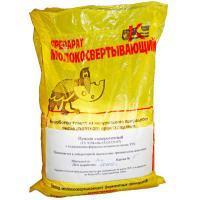On the self-identity of Belarusians and state support for families. What Washington Post journalists asked Brest residents

Photo is illustrative in nature. From open sources.
January 29, Brest. The Washington Post journalists arrived in Brest Oblast to work on a report. They visited the Brest Fortress and visited a village family, BELTA reports.
The foreign journalists were told about the history of the construction and restoration of the Brest Fortress and were shown the interior of the patriotic center. The WP representatives watched schoolchildren (currently, the shift includes children from Baranovichi) take classes in military-applied physical and medical training, and tourist-applied all-around events. The Washington Post correspondent Francesca Ebel asked what values Belarusians put into the civic-patriotic education of children. "Peace and love for their country, their home, their family. We raise children to be well-rounded individuals so that they can direct their strength and talents to the well-being of their native Belarus," the employees of the patriotic center said.
The Belarusian side was open with the journalists of The Washington Post: they showed and told everything that interested them. They were given a tour of the Brest Fortress and visited the Berestye Archaeological Museum.
Francesca Ebel is in Belarus for the first time, but having worked in different countries, she has heard a lot of good things about Belarusians. She agrees with this opinion. According to the journalist, she is preparing a story about Belarus, its relations with Russia and how the conflict in Ukraine has affected life in the European region.
To prepare her report, she also talked to the Azhanilok family. Sergey, Svetlana and their four children live in the agro-town of Mukhavets in the Brest district. "The guests were interested to know how we live, like children. They asked how the state supports families, including large families. We had three children, the state built the house. Now the fourth child has been born, the state also pays off the loan . We received family capital. The eldest child studies on a fee-paying basis, now two tenth-graders. Next year, perhaps, all three will study on a fee-paying basis. This help will be very useful to us. Family capital can be used for children's education, construction of housing, which the state has already helped us with. In general, we mainly talked about life," said the mother of many children.
Sergey and Svetlana work at the OJSC "Plemzavod Mukhavets". "We treated them to coffee , sausage. They really like our sausage , cheese, MILK. They said that our milk tastes better than in Russia. Sergey Anatolyevich (Svetlana's husband. - BELTA note) told us about the milk production technology at our farm. He explained that everything is natural. We supply milk to Savushkin Product, and it exports its products. That is, foreigners know our brands," the villager noted with a smile. Photo by Violetta Yuzhakova
The foreign journalists were told about the history of the construction and restoration of the Brest Fortress and were shown the interior of the patriotic center. The WP representatives watched schoolchildren (currently, the shift includes children from Baranovichi) take classes in military-applied physical and medical training, and tourist-applied all-around events. The Washington Post correspondent Francesca Ebel asked what values Belarusians put into the civic-patriotic education of children. "Peace and love for their country, their home, their family. We raise children to be well-rounded individuals so that they can direct their strength and talents to the well-being of their native Belarus," the employees of the patriotic center said.
The Belarusian side was open with the journalists of The Washington Post: they showed and told everything that interested them. They were given a tour of the Brest Fortress and visited the Berestye Archaeological Museum.
Francesca Ebel is in Belarus for the first time, but having worked in different countries, she has heard a lot of good things about Belarusians. She agrees with this opinion. According to the journalist, she is preparing a story about Belarus, its relations with Russia and how the conflict in Ukraine has affected life in the European region.
To prepare her report, she also talked to the Azhanilok family. Sergey, Svetlana and their four children live in the agro-town of Mukhavets in the Brest district. "The guests were interested to know how we live, like children. They asked how the state supports families, including large families. We had three children, the state built the house. Now the fourth child has been born, the state also pays off the loan . We received family capital. The eldest child studies on a fee-paying basis, now two tenth-graders. Next year, perhaps, all three will study on a fee-paying basis. This help will be very useful to us. Family capital can be used for children's education, construction of housing, which the state has already helped us with. In general, we mainly talked about life," said the mother of many children.
Sergey and Svetlana work at the OJSC "Plemzavod Mukhavets". "We treated them to coffee , sausage. They really like our sausage , cheese, MILK. They said that our milk tastes better than in Russia. Sergey Anatolyevich (Svetlana's husband. - BELTA note) told us about the milk production technology at our farm. He explained that everything is natural. We supply milk to Savushkin Product, and it exports its products. That is, foreigners know our brands," the villager noted with a smile. Photo by Violetta Yuzhakova
Read together with it:
- Боливия экспортирует говядину на сумму 797 миллионов долларов и вводит новые цифровые сертификаты для внешней торговлиЭкспорт говядины из Боливии в период с 2021 по 2025 год достиг 797 миллионов долларов. Китай является основным рынком сбыта этого мяса, на который приходится 74% продаж, сообщила Карина Серрудо, генеральный директор Национального таможенного управления. Параллельно с этим ведомство включило сертификат безопасности экспортных пищевых продуктов для говядины в систему «Единое окно для внешней торговл...
- Фон дер Ляйен заявила о смене подхода к санкциям против РоссииНовый подход подразумевает не предложение поэтапных санкций, а «гораздо более жесткие меры» в отношении энергетики, финансовых услуг и торговли, все это уже входит в 19-й пакет, заявила глава ЕК Урсула фон дер Ляйен Евросоюз при подготовке 19-го пакета санкций против России меняет подход, переходя «от поэтапного усиления давления к жестким мерам». Об этом заявила глава Европейской комиссии Урсула ...
- Калининградская область заинтересована в обмене опытом с Беларусью в мелиорации и закупке техники1 октября, Минск. Калининградская область заинтересована в обмене опытом в мелиорации и закупке белорусской техники. Об этом заявил губернатор Калининградской области Алексей Беспрозванных на 20-м заседании Белорусско-Российского совета по долгосрочному сотрудничеству областей, министерств, органов государственного управления Беларуси с Калининградской областью России, которое прошло в Совете Мини...
- США раскрыли долю поставляемого из России топлива для ядерных реакторовВ 2024 году Россия осталась крупнейшим поставщиком топлива для ядерных реакторов США, обеспечив 20% поставок. В США ранее усомнились в полном отказе от российского урана до завершения конфликта на Украине Россия по итогам 2024 года сохранила статус крупнейшего поставщика топлива для ядерных реакторов в США, несмотря на действующий запрет на импорт российского обогащенного урана, пишет BLOOMBERG. С...
- Belarusian exports of dry milk products to Myanmar quadrupled in the first half of the year.Photo by the Ministry of Agriculture and Food, September 30, MINSK . The first meeting of the Belarusian-Myanmar Joint Working Group on Cooperation in Agriculture and Food was held at the Belarusian Ministry of Agriculture and Food, the ministry told BelTA. The meeting was attended by Deputy Minister Ivan Smilgin, heads of the Ministry's departments, Ambassador Extraordinary and Plenipotentiary of...



























































